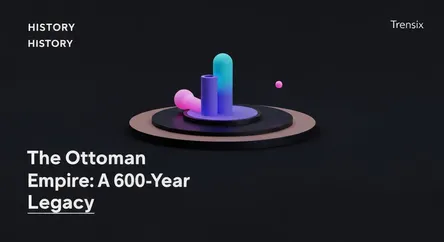History
The Ottoman Empire: A 600-Year Legacy

Explore the Ottoman Empire, a global power for six centuries that bridged the East and West and whose influence still shapes the modern world.
What is it?
The Ottoman Empire was a vast, long-lasting Turkish empire that began around 1299 and officially ended in 1922. Founded by Osman I in northwestern Anatolia, it grew from a small principality into a transcontinental superpower. At its peak in the 16th and 17th centuries, under rulers like Suleiman the Magnificent, the empire stretched across Southeast Europe, North Africa, and the Middle East. A pivotal moment in its rise was the conquest of Constantinople in 1453 by Mehmed II, which ended the Byzantine Empire and established Istanbul as the Ottoman capital. The empire was known for its powerful military, rich artistic and scientific achievements, and a centralized political structure headed by a Sultan.
Why is it trending?
The Ottoman Empire remains a topic of significant interest due to its profound and lasting impact on global geography and culture. Its 600-year history is crucial for understanding modern-day conflicts and political borders in the Balkans and the Middle East. The empire's legacy in art, architecture—such as the iconic Blue Mosque—cuisine, and language is still evident in many countries today. Furthermore, its complex system of governance over a diverse, multi-ethnic population, known as the millet system, offers historical case studies relevant to contemporary discussions on multiculturalism and statecraft.
How does it affect people?
The legacy of the Ottoman Empire continues to influence people around the world. Many modern nations in Southeastern Europe, North Africa, and the Middle East were formed from its former territories, and their political and cultural identities are deeply shaped by this history. The ethnic and religious compositions of these regions are, in part, a result of Ottoman policies. For people today, this influence can be seen in culinary traditions with dishes like kebabs and baklava, the prevalence of coffee culture which was popularized in Europe by the Ottomans, and in language, with many Turkish, Arabic, and Persian words integrated into local vocabularies.